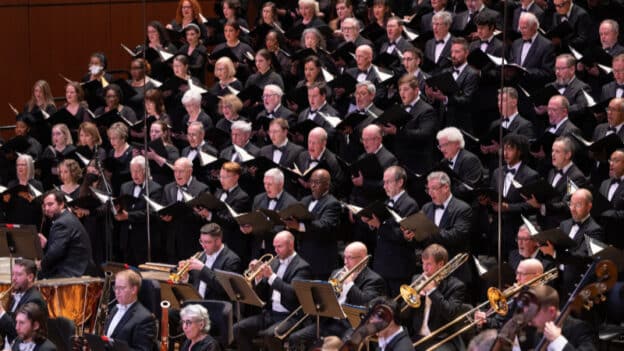Nathalie Stutzmann is dissed by choral critic
OrchestrasThe Atlanta gadfly music critic Mark Gresham reviewed the Mozart C minor Mass:

… Stutzmann’s conducting visibly lacked precision, which was evident right from the opening bars, where the violas were not quite in sync. However, they were on the money at the exposition’s repeat, suggesting that the performance quality improved when the musicians could rely more on their own collective cohesiveness as an ensemble. Despite all these issues, the musicians of the ASO are thoroughly professional; they play what the conductor’s gestural techniques ask, even if the musical choices are suspect….
This concert was not the first time Stutmann’s placement of the soloists behind the orchestra was a detrimental choice, perhaps aimed at visual synchronization with the conductor. (It did, strangely, look like Stutzmann was trying to conduct their solo singing.) This placement, however, led to balance issues, with the rest of the performing forces overwhelming the soloists, particularly noticeable with soprano Erika Baikoff, who initially struggled to be heard. Julia Lezhneva, on the other hand, managed to project more effectively.
In addition to the need for a better balance between the choir and orchestra, there were some issues with the choral sound (and I say this as a long-ago member of this esteemed chorus) — most conspicuously, a lack of focused pitch and sectional unison on high notes in the soprano section, plus a rather bright, “metallic” sound in those moments.
After the number of choral-orchestral works heard so far under Stutzmann’s leadership, it is still unclear to this nearly life-long chorister where she wants to go with their sound. She may not know. Or it may be that she just wants to escape the long shadow of Robert Shaw’s legacy, regardless of where that leads. However, music directors, and others who may be self-avowed “disruptors,” should take care when handling such legacies, both choral and orchestral. Atlantans have a long history of not appreciating “scorched earth” policies directed at our cultural history. (An acronym used on social media applies here, but better not to express or explain in polite company at this time.)
Full review here.
photo: ASO/Rand Lines






Comments